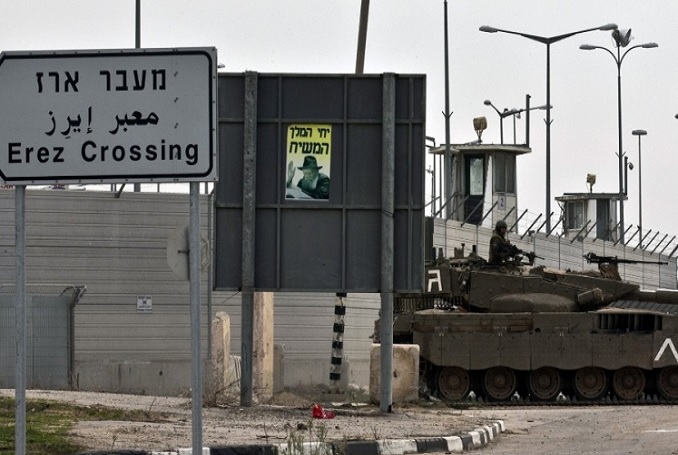Kafa, a 55-year-old patient from Rafah in the south of Gaza Strip, was diagnosed with chronic lymphocytic leukemia (CLL) in August 2018, more than 2 years ago.
Kafa underwent chemotherapy at the European Gaza Hospital in Khan Younis, in the Gaza Strip. After initially responding well to chemotherapy, Kafa was referred urgently to Istishari Hospital in Ramallah, in the West Bank, in January 2020 to receive a medicine called ibrutinib, a monoclonal antibody used in the treatment of CLL.
Doctors had detected that she had a relapse, and that the disease was not responding to her previous treatment regimen.
“I submitted ten permit applications to Israeli authorities to cross Erez to reach treatment, but they only approved one of my applications,” said Kafa.
Kafa first applied for a hospital appointment in November 2019. She was requested for security interrogation, but she reports that she waited all day at Beit Hanoun/Erez checkpoint and had to return to Gaza after no one met with her. In December 2019 and January 2020, she applied for another four appointments but all were either denied or delayed (under study).
Finally, in February 2020 after a delay of approximately three months and after appealing the decisions of Israeli authorities through the Palestinian Centre for Human Rights and Al Mezan Centre for Human Rights, Kafa was approved a permit to travel for treatment. She first had to undergo security interrogation at Beit Hanoun/Erez checkpoint.
She commented, “I was requested for security interrogation about ten days before my appointment. During the interrogation, the Israeli officer noticed my poor health and told me that he would allow me to cross to receive care. I was so happy that I had been approved. After that, I reached Istishari Hospital for my medical treatment, but it was the only time I’ve been able to access the hospital.” Between February and October 2020, Kafa did not apply to travel for treatment, due to the severity of the COVID-19 outbreak in Israel and the West Bank. She remained in the Gaza Strip, with her ability to apply for a permit to exit complicated by the Palestinian Authority’s end to coordination of permit applications during this period. In October 2020, however, after another relapse in her illness, Kafa applied again to reach treatment outside the Gaza Strip – this time through WHO’s temporary coordination mechanism for patient and companion permit applications.
Since October 2020, Kafa has made four unsuccessful permit applications to exit the Gaza Strip for treatment. She was also requested to undergo security interrogation again.
Kafa works as a cleaner in one of the Ministry of Health hospitals in the Gaza Strip. She has a family of six children and her illness has made it difficult to continue her work and her care for her children.
She commented, “I am suffering from severe pain in my stomach and my left leg gets more swollen every day. I need treatment that we don’t have here [in Gaza]. Is it not my right to get that treatment? I don’t want my health to deteriorate again.” (Source: The World Health Organization’s November report on Health Access Barriers for patients in the occupied Palestinian territory.)



